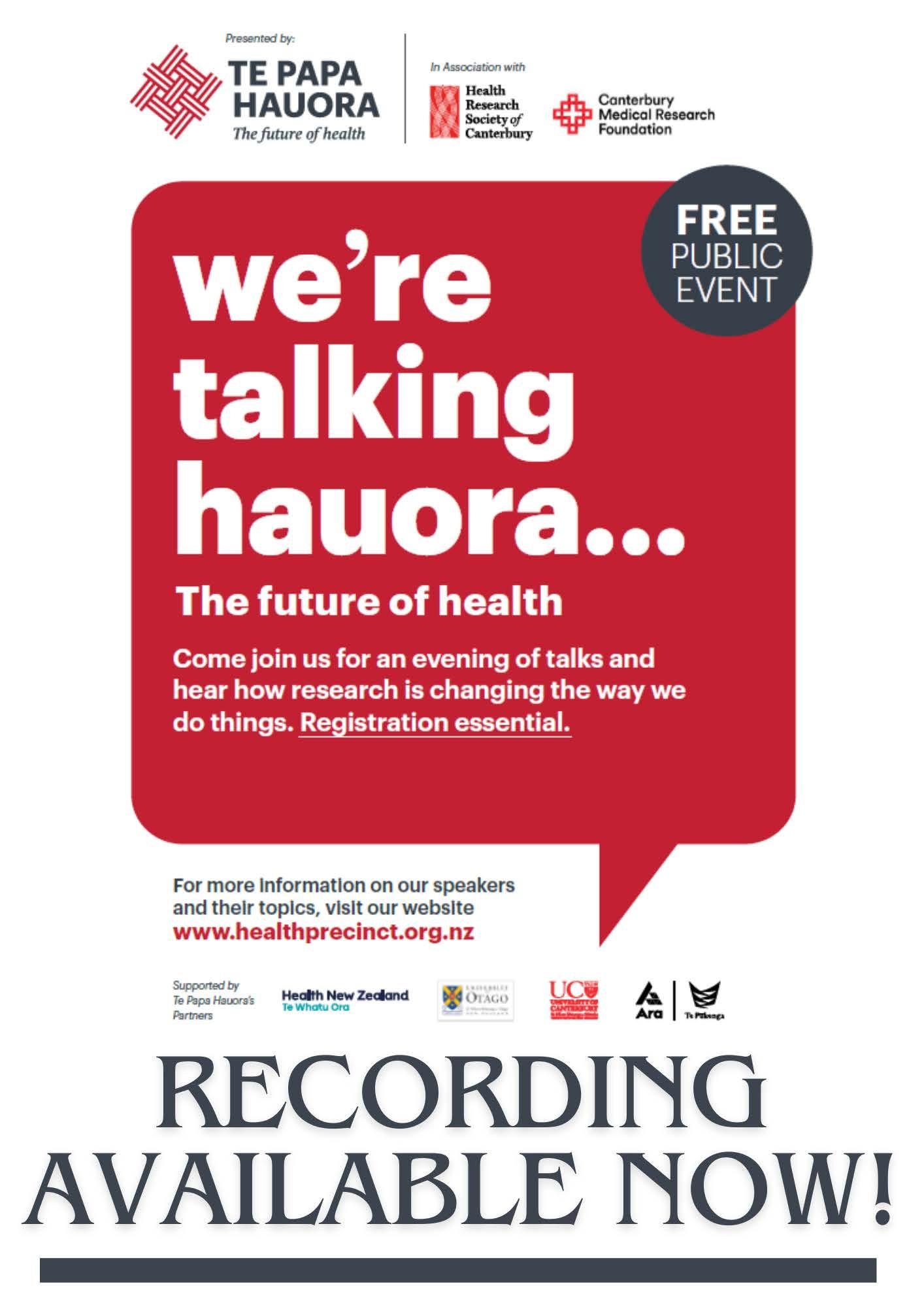Health New Zealand Te Whatu Ora Waitaha Canterbury Pānui











Kupu Arataki – Introduction... pg 3-5
Ā mātou tāngata – Our people
› Selfless service to others recognised... pg 6
› Nurse recognised for dedication to charity supporting parents... pg 7
› One minute with… Julie Broker, Nurse Manager, Integration, Ashburton Hospital... pg 8
Whakamihi – Bouquets... pg 9-11
Ā mātou korero – Our stories
› Many benefits to Hauora Māori data collection... pg 12-13
› Raising awareness of Cytomegalovirus (CMV)... pg 14-15
› Neurosurgery initiative goes South Islandwide... pg 16
Pānui – Notices... pg 17
With a recent increase in the number of cases of whooping cough, people are being urged to be alert for signs of the condition – especially in babies and young children.
Whooping cough (pertussis) is a serious infection that causes a long coughing illness. It spreads easily between people through coughing and sneezing and can be very serious for pēpi and tamariki, as well as for older adults.
Whooping cough causes breathing difficulties and severe coughing fits. The cough can go on for weeks or months.
Symptoms usually appear in the first five to 10 days, when the infection is also most infectious. The symptoms are similar to a cold, including a blocked or runny nose, sneezing, a mild fever and ongoing spasms of coughing (usually in the second week).
If you are worried about symptoms, contact your usual doctor or healthcare provider or call Healthline for free on 0800 611 116. In an emergency call 111 for an ambulance.
Immunisation is the best way to protect you and your whānau from whooping cough. Young pēpi are the most vulnerable and the best way to protect them is to get immunised during pregnancy.
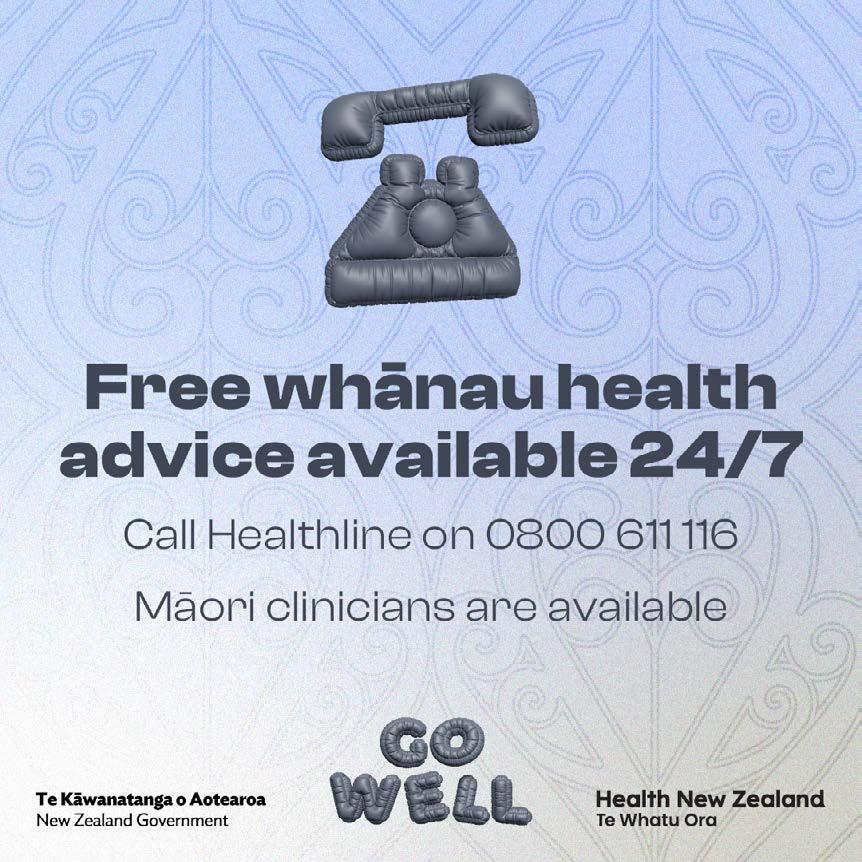
The whooping cough (pertussis) vaccination is free for:
› pregnant people
› all babies, children and rangitahi aged under 18 years
› all adults at 45 and 65 years of age (it is the same vaccine as the tetanus booster)
› people at higher risk of becoming very unwell if they catch whooping cough (such as those with chronic respiratory conditions, congenital heart disease or who are immunocompromised).
Find out more about whooping cough vaccinations here.

This week we mark National Volunteer Week and the generosity and kindness of the hundreds of committed volunteers who support our frontline services.
Whether it’s driving people to appointments, playing music to lift spirits, collecting and distributing donations, or simply spending time with patients, our health system couldn’t do what it does without volunteers.
The National Volunteer Week theme this year is ‘Whiria te tangata – weaving the people together’. Volunteering weaves us together, strengthening the fabric of our community.
Now more than ever, as a volunteering community, we commit to manaakitanga and whakawhanaungatanga. We commit to caring, and to building meaningful, enduring and inclusive relationships across our differences and to make space for diverse voices.
In this week’s Pānui we celebrate with members of the Wednesday Wayfinding team from Christchurch Hospital, who have won a 2024 Volunteer Recognition award from Volunteering Canterbury, along with Children’s Emergency Care nurse Josie Mill, recognised for her volunteer work with local charity One Mother to Another.
Burwood Hospital volunteers will be marking the event with a morning tea tomorrow and presenting long service awards to 21 volunteers including two who have been volunteering for 15 years.
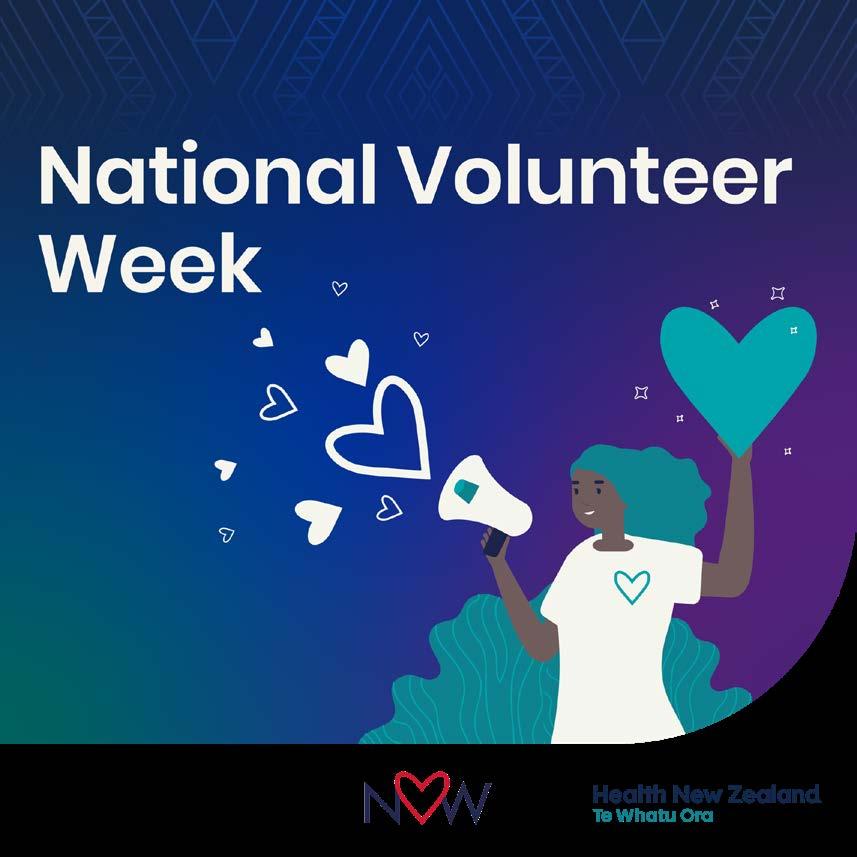
› Approximately 21.5 percent of New Zealanders undertake volunteer work.
› Adding in informal and casual volunteering, 50.7 percent of adults have done some volunteer work in the last month.
› Of those who have volunteered, 30.2 percent volunteered through an organisation and 36 percent volunteered directly
› The value of formal volunteering is estimated at $4 billion per annum.
› New Zealanders contribute a total of around 159 million hours of formal volunteer labour each year.
› The number of people volunteering for an organisation declined from 1.2 million in 2013 to 1 million in 2018.
Bowel cancer is the second highest cause of cancer death in New Zealand, with over 1200 people dying each year – as many as breast and prostate cancer combined.
June is Bowel Cancer Awareness Month, so Kiwis are urged to learn the symptoms and take action this winter.
“We are losing far too many loved ones to this disease every year, and we shouldn’t be,” says Bowel Cancer New Zealand General Manager Rebekah Heal. “Bowel cancer is curable in 90 percent of cases if caught early enough. Early detection and prevention are key, and that’s why our focus this June is symptom awareness.”
We’re always aiming to improve our communication, so that kaimahi are kept informed and up to date with what’s happening across the sector in Waitaha Canterbury. Pānui is an important channel – and we’d like your feedback to help us understand what content resonates with you, and how we can make the newsletter more engaging, relevant and useful.
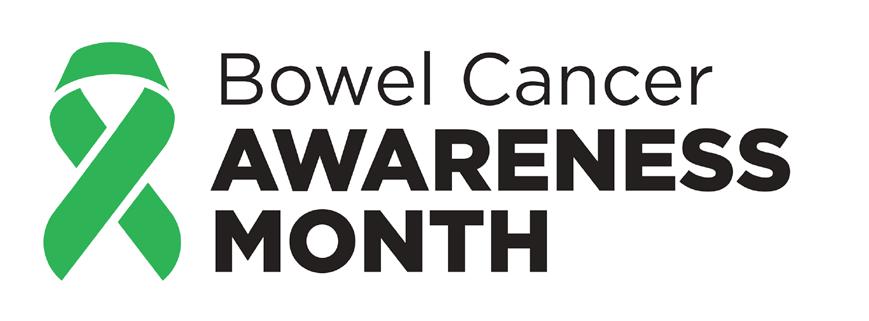
Bowel Cancer NZ has developed an online symptom checker, which 1500 Kiwis used last year.
The charity also has awareness resources available to download and order via their website.
“We hope Kiwis take action this June. Know the symptoms, get checked and help raise money for this important cause,” says Rebekah Heal.
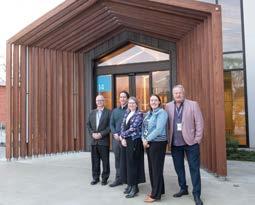
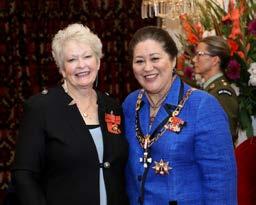
We’re inviting you to complete a short survey to gather your feedback and suggestions about the Pānui. The survey will be available tomorrow – we’ll send out the link by email, and details will also be available on the daily update on Prism. The survey will only take a few minutes to complete, and your responses will remain anonymous. Thanks in advance for your input.
If you have a story idea or a success story to celebrate, we would love to hear from you! We are always looking for stories about new services and facilities, innovations in care, awards and achievements, and celebrating our colleagues successes both at work and elsewhere.
To share a story, or to find out more, please email us at communications@cdhb. health.nz
Please note, from next week our deadline for stories is changing. The deadline for story submissions is 5pm Wednesday each week. If you’re sending photos, please email them as high-resolution attachments.
The Wednesday Wayfinding Volunteer team on the Christchurch Hospital campus has been acknowledged for their dedication, with an award from Volunteering Canterbury.
This team volunteer throughout the campus, greeting people, helping patients and visitors get to their destinations, and carrying out many other tasks such as delivering parcels to patients and collecting and deploying wheelchairs.
They are often the first face visitors and patients see as they arrive, and their friendly welcome provides warmth and comfort to people who may be feeling stressed and lost.
The team has won the 2024 Volunteer Recognition award from Volunteering Canterbury. This award is presented each year during Te Wiki Tūao ā-Motu National Volunteer Week to recognise outstanding efforts and achievements by volunteers of all ages in all sectors.
Many of the team took up the role as a way of giving back after the care they and their loved ones have received.
“This hospital helped my son, saved his life by sorting a new kidney for him,” says Wayfinding Volunteer Howard Whitteker.
“The staff here looked after both of us as it was my kidney that my son received. He was in and out of hospital for two years. We are both doing well and being here volunteering has taken a lot of my fear of hospitals away.”
Margaret Kinzett says she began volunteering after her husband died.
“He spent a lot of time in the hospital as he had myeloma, and he was treated so well by the staff. They were very kind to him. After that experience I just wanted to give back.”
Sarah Scadden says people are already stressed when they come into hospital. “A lot of them come from out of town, or from smaller hospitals, and when they arrive here it is so vast for them – they just don’t know where to go and are so appreciative of our help. That’s so rewarding.”
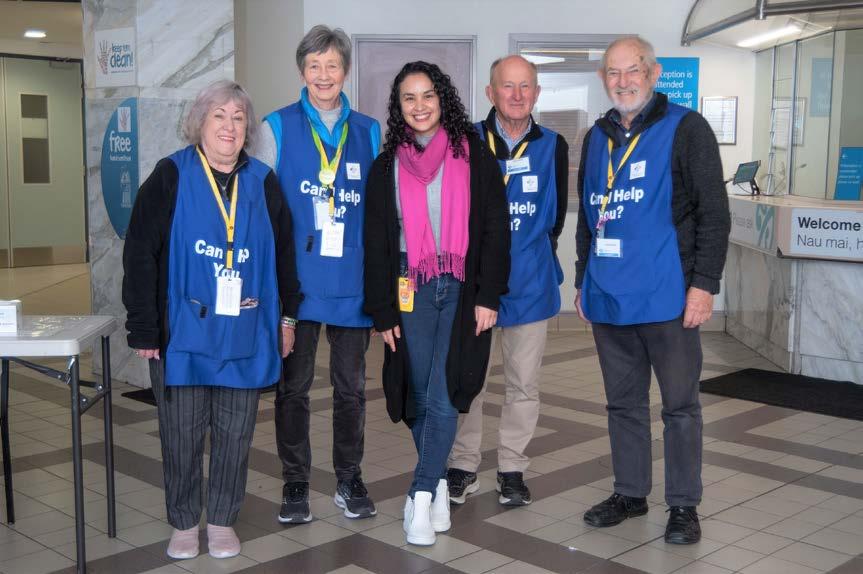
Norman, who is also a driver for the Cancer Society, says remembering all the parts of the hospital and having different departments mapped out in his mind helps keep him mentally sharp.
They all agree it keeps them physically active too, with at least 10,000 steps each per shift.
Volunteer Coordinator Louise Hoban-Watson says she is proud of the team and of all the volunteers – there are more than 170 on the Christchurch Campus.
“They really help keep the hospital running, they are outside in all weathers, and they reduce stress on the people who walk through our doors, yet they often don’t get acknowledged for the huge amount work they do. It is wonderful that this team have been recognised by Volunteering Canterbury as being truly worthy of receiving this award.”
Wayfinding Team Leader Maria Flores says the volunteers, some of whom are in their 80s, do between one and three shifts a week and some have been in the role for over 10 years.
“Last year the Wayfinding team alone gave just under 10,000 unpaid hours across more than 2300 shifts.”
Some of the volunteers gave over 500 hours of service.
Congratulations to Children’s Emergency Care nurse Josie Mill, who is being honoured by Volunteer Canterbury during National Volunteer Week, for her outstanding service to local charity One Mother to Another (OMTA).
Josie's recognition marks a significant achievement, highlighting her more than five years of service to the charity which supports parents and caregivers by creating care packages for parents in hospital with their children/babies in 15 South Island hospital wards - the majority in Christchurch.
As a senior nurse in the Children's Emergency Care (CEC) ward, she has been giving the care packages to parents of patients for many years and as a result started volunteering for the charity on her days off. Josie's unique position in CEC allows her to assist with packing days and then personally distribute some of those care packages to the families they are meant for and see the impact they have.
"Parents are often at an incredibly stressful point in their lives – overtired, overwhelmed, or in need of a little extra love and kindness. I witness first-hand the overwhelming sense of support that someone receives when they are gifted an OMTA bag. Often, the parent is in awe of such an amazing act of kindness, and many times, I see tears of gratitude," she says.
"I see One Mother to Another as a very organised group with a strong foundation. The team is dedicated to their cause and shows a strong passion for their purpose, often stemming from their own lived experiences."
Josie's commitment, energy, and perspective have been invaluable to the organisation, who nominated her for the award.
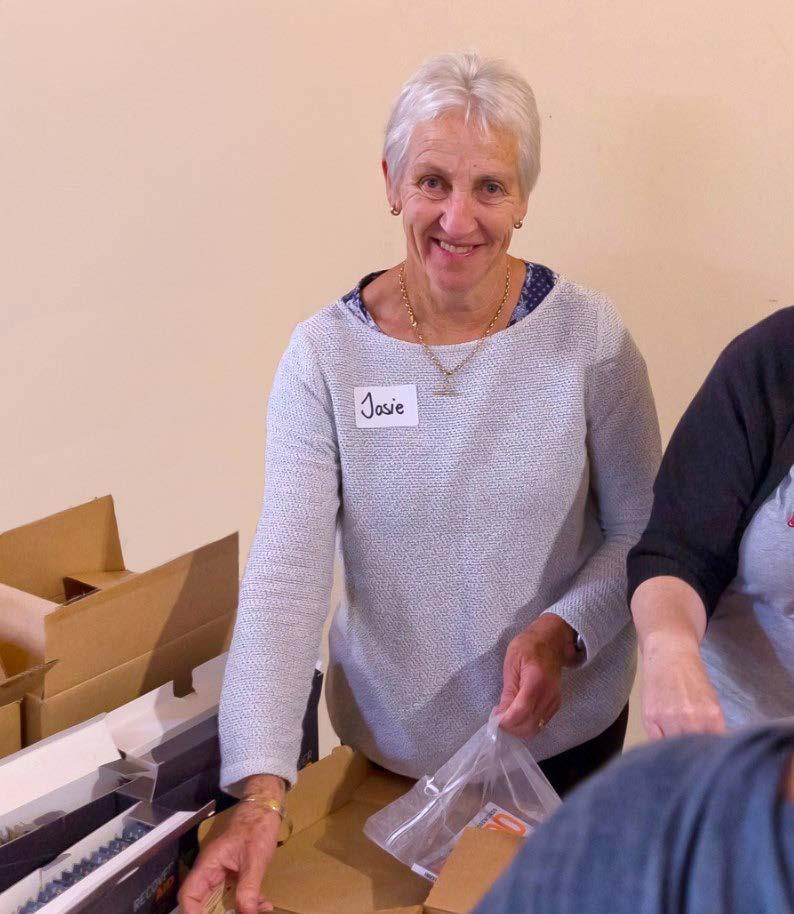
Josie finds great joy and satisfaction in her volunteer work with OMTA. "One Mother to Another is an incredibly worthwhile cause, supporting people in vulnerable situations. I love the personal joy and satisfaction I get from my packing days. I always leave feeling like I've gained a room full of like-minded friends. I enjoy meeting new people and reconnecting with those I’ve met on previous packing days. The stories we share add to our own 'Tapestry of Life.'"
What does your job involve?
I am Nurse Manager for Integration Services in the Ashburton District which covers all planned and procedural care. This is delivered either in the community or at Ashburton Hospital and includes district nursing, home-based support services, clinical nurse specialists, needs assessment, the Elizabeth Street Day Centre, Outpatients, the Medical Day Unit, and the Surgical Day Unit (Endoscopy, Gynaecology and Urology procedures). I have two very capable clinical leads (an Associate Clinical Nurse Manager and a Clinical Nurse Coordinator) who manage the teams on a day-to-day level, and a skilled Rural Generalist team who have the flexibility and ability to work over these areas, which is vital to maintaining service delivery within a small team. I am lucky enough to have an exceptional team behind me which allows us to deliver care to our community.
What pathway got you to this job?
I have been a Registered Nurse since 1999 after completing my degree at the polytechnic in Christchurch and worked my first years as a rehab nurse at The Princess Margaret Hospital while starting a family with my husband. We then moved to Oamaru, and I worked part time at Oamaru Hospital before moving to Ashburton where I worked from 2009 in the Acute Assessment Unit as well as some Duty Managing. I was seconded to Charge Nurse Manager of the rehabilitation ward in 2020. Ashburton Hospital then went through a change management process, and I secured the Nurse Manager, Integration position in 2021 which is busy but highly rewarding.
What advice would you give someone keen to enter your field?
The ability to see the bigger picture and stay calm in a sometimes-hectic environment and to lead by example to give the best care possible to our community while caring for the carers who deliver this.
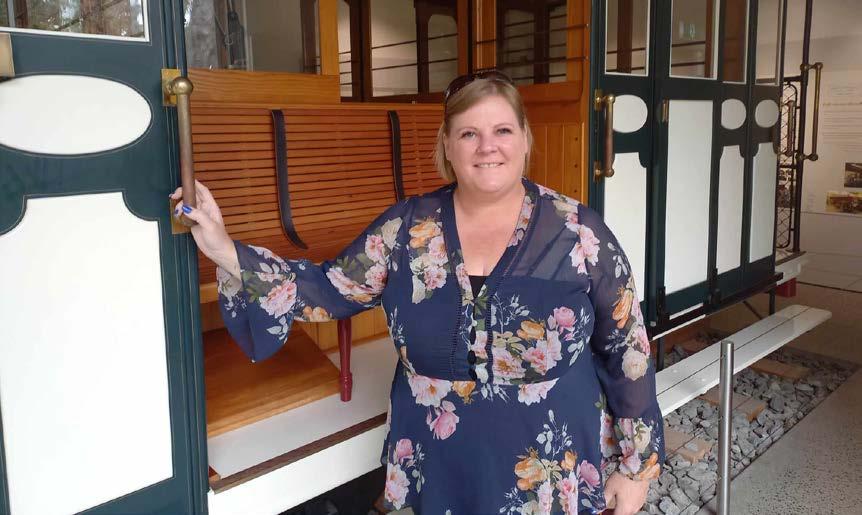
My managers over the years who have supported and inspired me to grow in my career, but ultimately my family, who have always worked hard for everything that they have and made me the person I am today.
What do Waitaha Canterbury’s values (Care and respect for others, Integrity in all we do and Responsibility for outcomes) mean to you in your role?
These values are how I try to live my life and ultimately lead my team. As nurses, I believe we are there to do the best for the people we care for –whether this is the community or my team.
If you could be anywhere in the world right now where would you be and why?
Right here, Canterbury is where I am from, and apart from a holiday, is where I will likely stay.
What are some of the ways you and your whānau show their aroha/love for our planet?’
We actively recycle and try to prevent unnecessary waste, including recycling wastewater. We own an eco-friendly home and have solar panels to try to help care for our environment.
What are your hobbies/interests outside of work?
I have a wide circle of friends and greatly enjoy socialising outside of work and I am known to throw a good party. I play lawn bowls in the summer and love a good quiz night. I am a member of a syndicate for some harness racing horses which have just begun their racing careers so hopeful for their futures.
If you would like to take part in this column or would like to nominate someone please contact Naomi.Gilling@cdhb.health.nz.

Emergency Department (ED) and Intensive Care Unit (ICU), Christchurch Hospital
I would like to express my sincere gratitude for the exceptional medical care provided to my husband last year and this year. I salute all the hospital staff who worked tirelessly to save his life.
Maribel and Ashley, ED, Christchurch Hospital
My dad had a heart attack and Maribel RamosYoung was the best Hospital Aide I could ask for! She made my dad laugh more than he ever has in his entire life! She was so welcoming and appreciative and so funny. Dr Ashley was also incredible, funny as anything and made Dad feel so comfortable and at ease.
Radiology, Vascular Surgery, Recovery, ICU and wards A8, 28 and 21
The whole process was of world class quality in all respects. Empathy, communication, knowledge, experience, technical ability, availability of accurate diagnostic techniques, timeliness – these are just a few of the aspects that could never be bettered. All your staff treated me so well, I feel very humbled and grateful. All staff went way beyond the call of duty, including their interaction with my supportive wife. I am aware that your service was instrumental in saving my life and I thank you all for this.
Ward 10, Christchurch Hospital
My mum came into the hospital for heart surgery. She is elderly and needed the surgery to give her back her quality of life. The staff in the hospital supported and helped her with kindness and compassion. They were also very thoughtful of me as her support person. I appreciated how they got me equipment to be able to take her home and continue her recovery. They didn't push her to leave quickly and ensured she was looked after. I thought the talk about patients leaving and what to do was great. The in-home care that my mum got once she left hospital to get her wound dressed daily was fantastic. Without all the wonderful people committed to providing good health care in the hospital and at home, Mum would not be able to live a satisfying and enjoyable life in her own home.
Recently I spent six nights in hospital in PGM as I was seriously unwell. During my time there I had excellent nursing care. A big shoutout especially to Jess and Richelle who provided the bulk of my nursing care while I was a patient there. They were calm, empathetic, and very reassuring given that it was a very scary time for me. Many, many, thanks to them and the other nurses who looked after me there.
Gastroenterology, Christchurch Hospital
Words can’t say thank you enough.
PGM, Christchurch Hospital
Would love to thank the wonderful nurses on PGM. They were kind and patient, and nothing was a problem. Everyone, from the cleaner to the catering assistants, were so kind. When my family phoned, the receptionist was nice and never seemed to be inconvenienced by the phone calls. Thanks, PGM.
Christchurch Hospital
The staff who cared for me were respectful, courteous, efficient, cheerful, friendly, and above all, caring. This includes the senior doctors (Haematology) to the cleaners. I cannot fault anything.
Jordan, ED, Christchurch Hospital
I was very impressed with the way Jordan worked with my unwell son. Jordan actively listened and allowed my son to tell his story of his illness, with no judgement, and without pressure. My son was also very impressed with Jordan’s cannulation skills! Thank you, Jordan, keep up the great work.
Adrienne and Lynley, Hillmorton Community Dental
What a fantastic experience for my son and me! To get to the clinic and be in within 30 seconds and out with the job done with a smile so very quickly - just fantastic. Please pass our thanks on to the team.
Eye Outpatients
Thank you for your kind and gentle help (technician, injector, and receptionist). May you be abundantly blessed.
Jerry, Endocrinology Outpatients
Yesterday I accompanied my husband to an appointment at Endocrinology. We were seen by Jerry Shen. I cannot speak more highly of him. He listened carefully to my husband and explained the tests he was doing. I was very impressed that when my husband talked about some of the problems that he is having, Jerry listened to him and did not say that it was not his (Jerry's) problem. Instead, he suggested who my husband needs to be referred to so that he could find a solution. We felt that he really cared. Please thank him.
I endured Dr Gabrielle McLean removing a nasty thing from my scalp. I have to say that the lump was the only nasty thing of the day. Instead, I must tell you, it was an absolute joy without pain or blood tranfusions! Dr McLean and everyone else who played a part in this procedure were an absolute delight. We all thoroughly enjoyed ourselves, listened to "The Who" on Spotify, told bad jokes, and established an excellent rapport. The Dermatology department is outstanding, in all aspects. This includes my twice-weekly phototherapy sessions. This is an awesome team of people. Thank you everyone.
Gastrointestinal Endoscopy, Christchurch Hospital
Dr Samantha Benson-Pope was incredible with this and didn’t once treat me differently due to the reason I was attending the clinic. Having the treatment that I did was unexpected and for this I wanted to pass on my thanks.
I am a Health Executive in Australia and while visiting the beautiful city of Christchurch found myself receiving care in both your ED and Cardiology Unit. Being a consumer was definitely a unique and different experience for me. I want to thank the clinical and clinical support staff for their care and professionalism. I, more than anyone, know the competing demands that are placed on caregiving staff every day and how hard at times it is to maintain compassion and engagement with patients when juggling these demands. Each staff member who I encountered demonstrated the values of the organisation. Particularly of note and appreciation were the continual updates that I received while in ED. Emergency departments, by their very nature, are busy and unpredictable places. 'Waiting' is a pastime in this environment. I have always spoken with staff, that given the very nature of the environment, communication is key to ensuring patient wellbeing. The Christchurch ED is a shining example of this practice. Yes, I waited, no doubt because there were more critical patients than myself, but at all times, I was made aware of what was going on/what to expect and that I wasn't forgotten. I wish I knew the name of the nurse who predominately looked after me, because she did a wonderful job. The ED medical team were prompt, clear and engaging and did their utmost to explain the path forward. Dr Georgia Burton from the Cardiology team subsequently assessed me and arranged a host of tests. I know how inundated any registrar's day can look, I'm sure hers was no different. She did an exceptional
and thorough job of my evaluation and care planning. Her subsequent care and discharge summary were equally as thorough. I know she is finishing her projects and can look forward to a wonderful career. The patients under her care will benefit from her calm and measured approach as well as her diligence. I deeply wish her well. We need her calibre of medicine practiced for all the community's benefit. Selina from the casual pool spent quite a good deal of time with me. She was a calm and supportive presence and a deeply committed nurse, very aligned to compassionate and respectful care. The little things that she did are a testament to her commitment to the nursing profession and caring for her community (or Aussies!). I would want any of my family members under her caring and watchful eye. Brooke and Nick cared for me on the Cardiology unit. Both are young, engaged, and compassionate nurses who are optimistic about their future in a caring profession. I am so heartened to see this attitude and would encourage them to ensure their wellbeing so that they can go on caring for vulnerable patients because they are wonderful and diligent nurses with long and satisfying careers ahead of them. I hope the organisation supports their development and succession as they mature in their careers. I must also mention the catering assistant. He was engaging, caring, thoughtful and clearly wanted to make a difference. He was a bright spot in an otherwise mundane day, and I have no doubt staves off any feelings of loneliness that patients may have. He is a fundamental and key part of the team in nurturing and supporting the healing journey for patients.
The work done by Hauora Māori kaimahi is being further digitised to streamline their processes, increase visibility of what they do and ensure patients receive the right support from the team.
Hauora Māori is about the wellbeing of Māori and the dedicated team who work in this area respond to Māori health needs, providing appropriate support and advocacy to Māori patients and their whānau during their health journey through various campuses and departments.
The team plays a crucial role in providing appropriate support and advocacy for Māori patients during their hospital stay. They aim to ensure Māori patients receive holistic and respectful care, aligning with Te Ao Māori (the Māori worldview) and the principles of Te Tiriti o Waitangi (The Treaty of Waitangi).
The Hauora Māori team at Christchurch Hospital has used the Cortex electronic medical record system to document notes since 2017, however a direct conversion from paper to digital didn’t help collect the important Care, Capacity, Demand Management (CCDM) data Allied Health needed.
The standard way of documenting clinical notes meant there was a lot of duplication and re-entering the same information.
As a result, the team worked hard together to relook at the digitisation of their documentation and lining it up with their workflow, says Māori Health Worker Maringi Morgan-Parnell.
“Utilising Cortex differently from a traditional paper form helps present the clinical summary and notes in a manner relevant to how Hauora Māori interact with their patients. Due to the new way of collecting data, from 2023, we are now able to report CCDM data for Māori patients”.
The team’s data collection system has been enhanced and standardised with Allied Health’s CCDM with lots of new features, such as workflow and referrals.
“One example is the new Māori Health Inpatient Referral Form which helps guide clinicians on what the team can provide to patients and a Referral Acknowledgement form for referrals that we have received.
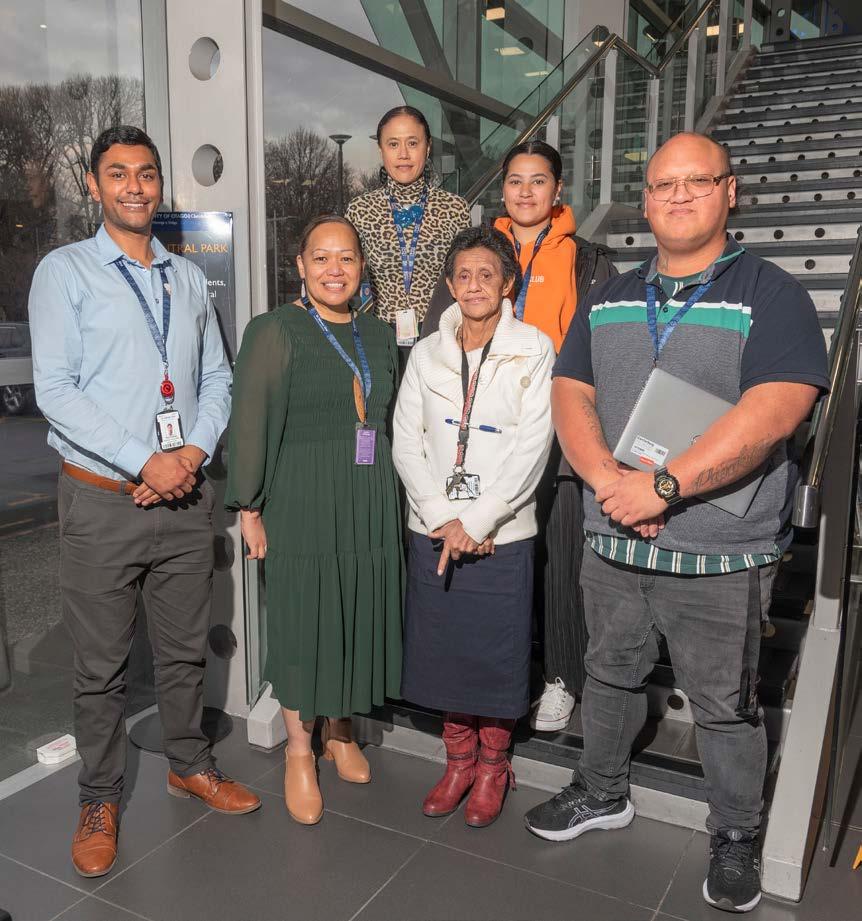
Māori -Intensive Care Ariana Kaa (Ngati Porou/Te Whanau a Apanui) and Hauora Māori Administrator | Kaiwhakahaere Tari Hariata Allen (Ngai Tahu | Te Atihaunui A Paparangi) Front row, from left, Kaimahi Hauora Māori | Māori Health Worker - General Medicine Surgical and Gastroenterology Kiwa Shankar (Ngāti Awa | Ngāi Te Rangi), Kamahi Hauora Māori |Māori Health Worker - Cardio-Respiratory Integrated Specialist Services Maringi Morgan-Parnell (Ratonga Manawa Hā Waikato - Ngāti Hinerangi), Māori Health | Kaiwhakahaere Hauora - Māori Health Service Waitaha Te Pora Ehau (Ngati Porou) and Kaimahi Hauora Māori - General Medicine Tama Te Morehu Ngaha (Waikato-Maniapoto / Ngāti Mahuta)
We complete this form just like the rest of Allied Health. Once we accept the referral, it’s available for everyone to see in the inpatient Cortex system.”
A couple of new forms designed by Allied Health Clinical Informatics Consultant Charlene Tan-Smith are the Community Cardio-Respiratory Integrated Specialist Service Hauora Māori note and the Hauora Māori Clinical Summary.
The community note gives the team a way to document community notes while passively collecting data for CCDM. The clinical summary helps gives visibility to Māori patients.
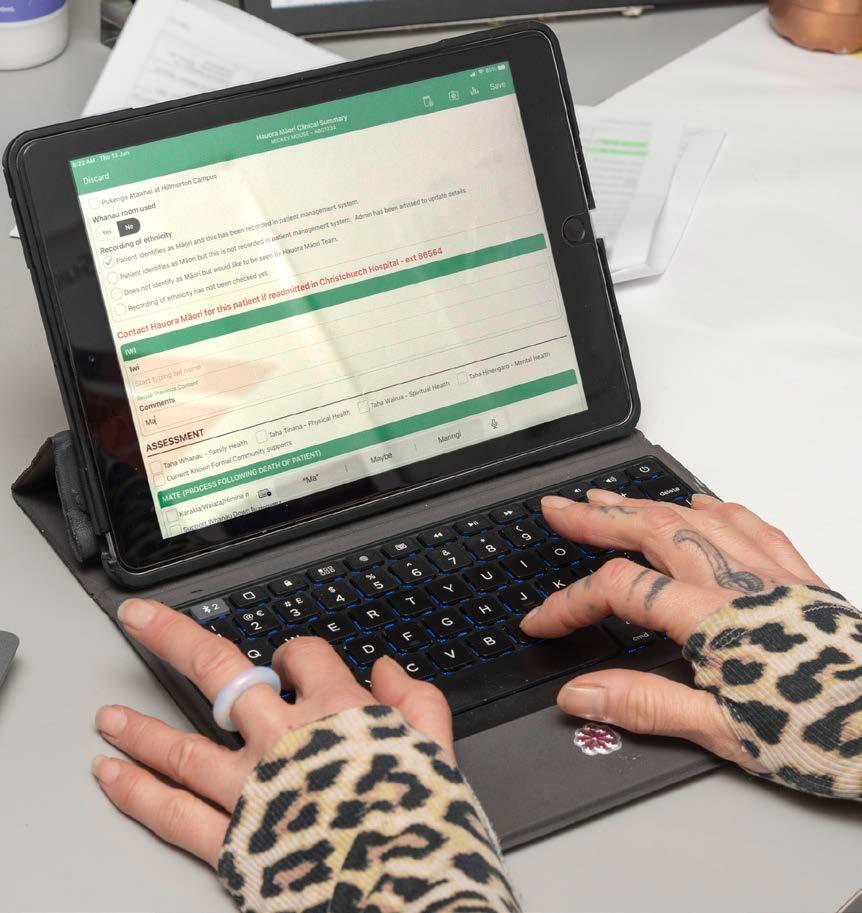
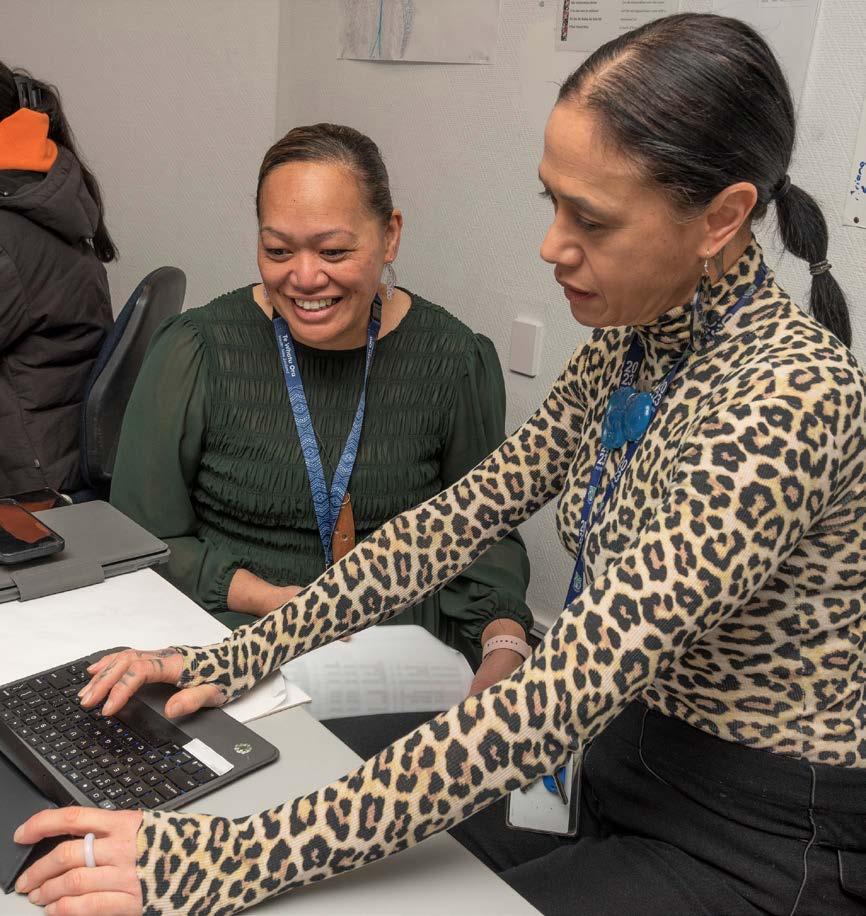
“This helps make patients who identify as Māori more visible for all disciplines to see and it always sits on the top of a tūroro (patient)’s file so will never drop down when a new note has been created in Cortex.”
The system is a great example of partnership and creating something that works for Māori, Maringi says.
“It has been designed for Māori by Māori, and we now have two other hospitals that have started the process of doing the same – Ranga Hauora Burwood Hospital has just started using Cortex and the West Coast is due to come on board later this year.”
Preliminary results of efficiencies gained are looking promising. Maringi, Allied Health CCDM Coordinator Karen van Coillie and Charlene presented to the National CCDM Māori Health Advisory Group last week to describe the project.
“They were impressed by our Canterbury results and efforts and have indicated that they want to invite us to the national forum. The next steps are to continue to educate on what our involvement is and who are we involved with and sharing stories of our experience,” Maringi says.

June is cytomegalovirus (CMV) awareness month –an opportunity to help prevent the most common, but not well known, cause of newborn disability.
Cytomegalovirus (CMV) is part of the herpes virus family and is very common – affecting between 0.5 and 2.5 percent of all live births. It is passed on by body fluids, with the most common one being saliva.
Newborn Hearing Screening Program Coordinator at Christchurch Women’s Hospital Angela Deken says having children at preschool is one of the common ways CMV is spread. “If a normal healthy adult or child develops CMV infection they may have flu-like symptoms or can remain very well with minimal clinical evidence of infection at all. Around 60 percent of pregnant women will have been exposed to CMV prior to pregnancy and have some natural immunity.
“The concern is for the 40 percent of women who have not been previously exposed to CMV and have no immunity. If they are exposed to CMV while pregnant, in particular the first trimester, the infection can pass directly from the mother to the baby. The earlier in pregnancy this transmission occurs, the more risk there is to the baby.
“Women who have been previously exposed to CMV can still get a reactivation of CMV during pregnancy or get a different strain of CMV which can affect the baby.”
CMV: The virus you've probably never heard of
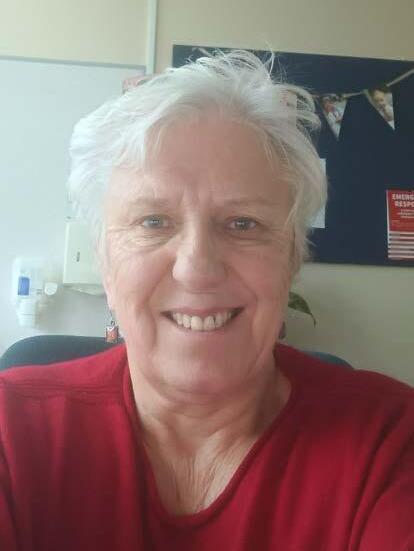
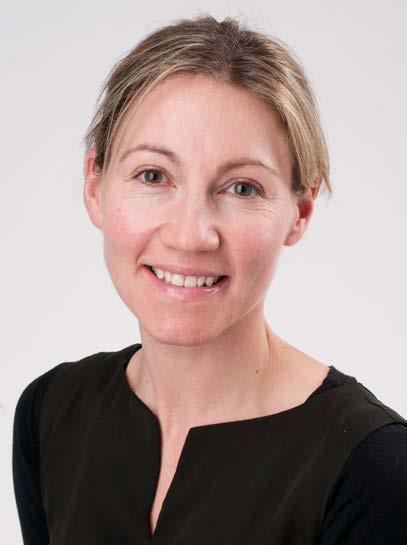
CMV is the most common infection transmitted during pregnancy, yet the least talked about.
“Only around nine percent of healthcare professionals routinely talk about CMV to pregnant women or women planning pregnancy. Surveys show 65 to 80 percent of women have never heard about CMV infection in pregnancy, but nearly all of women wanted more information about it to protect their baby.”
CMV infection in pregnancy can lead to serious problems for the baby, from sensorineural hearing loss (second most common cause of congenital sensorineural hearing loss), visual problems, motor and physical impairments, to seizures, autism, learning disabilities, cerebral palsy and even stillbirths.
Otolaryngology (ENT) Consultant Melaine Souter says the majority of babies born with congenital CMV will have no or very few symptoms, however problems can still develop as they grow. The 10 percent of babies born with congenital CMV symptoms will have long term disabilities.
“New Zealand doesn’t currently screen pregnant women or newborn babies for congenital CMV although some places around the world are starting to universally screen babies. Currently there is no vaccine available but one is currently being developed and trialled, so prevention of CMV infection during pregnancy is essential,” Melanie says.
“There are drugs that can be used to treat a baby who has symptoms of CMV, but they do have some side effects.
The newer available anti-viral treatments are far better tolerated.
“Research shows 80 percent of CMV can be prevented with education about hygiene practices, so public awareness and health professional education is very important.
“All healthcare workers must do what they can to educate pregnant mothers and other professionals on ways to stop CMV transmission and learn about the impacts of this virus.”
CMV Resources
New Zealand and Australian agencies are working together to promote resources for pregnant people and healthcare workers, with information about CMV. Here are some useful links:
› Free eLearning Course for Midwives - Cerebral Palsy Alliance
› CMV - Resource Hub - Cerebral Palsy Alliance
Resources for midwives and GPs
› Mercy Perinatal
› Congenital CMV: Prevention is in your hands (midwives.org.au)
› Cytomegalovirus (CMV) | Healthify
General CMV information
› CMV Aotearoa Facebook page
› CMV Australia
› CMV Australia Video – What is CMV?
For more information or to access additional resources, contact Angela.deken@cdhb.health.nz
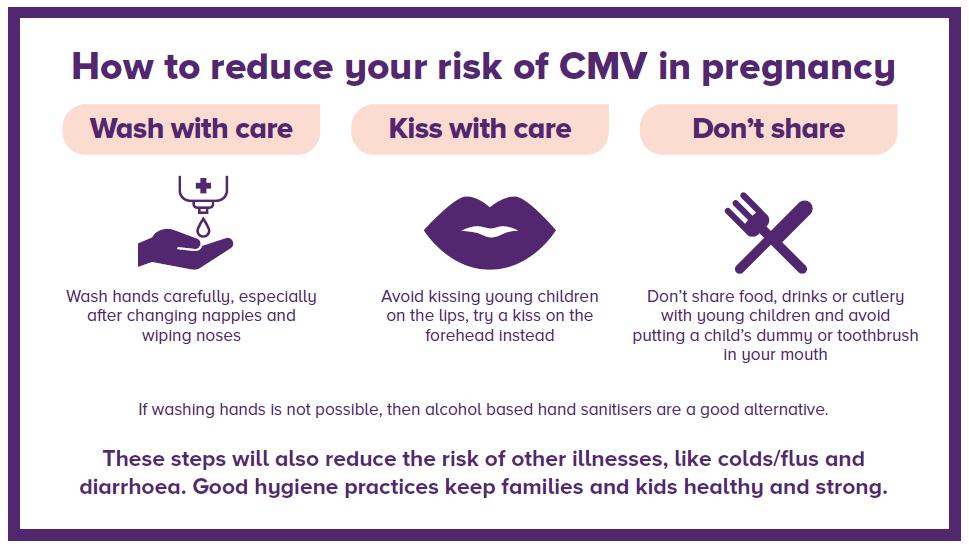
A pilot programme to help neurosurgery patients has been so successful, plans are under way to roll it out to hospitals in Timaru, Greymouth and Nelson.
In a first for the South Island, a patient navigator team was established at Southland Hospital in 2022, with support from Christchurch colleagues, to focus on improving patient communication access and waiting lists for neurosurgery.
Within 12 months of the pilot starting, the staff, two nurses (0.6 full-time equivalent) and an administrator (0.2fte), became permanent in their navigator roles and serve a population of 141,000 that takes in Southland, Invercargill, Gore and Queenstown.
The Navigators work with patients at the beginning, middle and end of their health journey using the service and are currently working with a caseload of about 200 patients.
They do background work like organising the waitlist, organise MRI, CT scans and ensure everything required is done so the patients are ready when they meet with the neurosurgeon.
They will sit in on appointments with patients to provide support and guide them through telehealth appointments. This reduces the need for Southern patients to travel to Dunedin or Christchurch, which are the two main specialist centres for neurosurgery in the South Island.
In addition to the telehealth clinics, outreach clinics have been organised where the Dunedin-based neurosurgeons routinely visit Southland Hospital for face-to-face clinics, consulting with patients close to their home.
Regional Programme Manager for Neurosurgery
Keith Todd says it’s an effective model to assist patients.
It’s a project that has caught the eye of national health leaders, who feel the South Island Neurosurgery teams are leading with a navigator model that should be adopted nationally, he says.
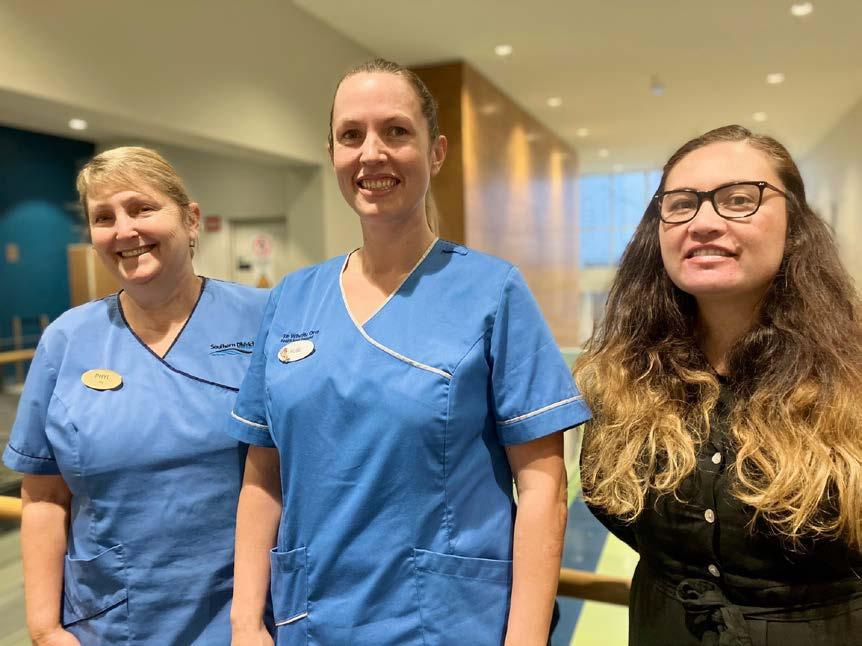
“There are a whole range of health services that are complex and daunting for patients to face but I think you can put neurosurgery close to the top of that list.
“The Navigators follow the patients all the way through, and I would say this cohort of patients is much better informed than usual. This results in clearer understanding, having established points of contact to answer questions patients might have, and a much higher rate of patients adapting to the use of telehealth appointments,” Keith says.
To roll the model out to other rural hospitals, Keith is working with the executive nursing directors to see if Outpatient nurses could adopt navigator roles, like the Southland team model.
“It will require training and guidance and support from the wider neurosurgery team, but I believe the benefits are definitely there to improve patient experience and finesse the service itself,” he says.
“The success of the Southland Hospital Navigator team comes from the links with the Dunedin and Christchurch main centres with development and education and team building opportunities that have brought a genuine team approach to regional neurosurgery service.”
